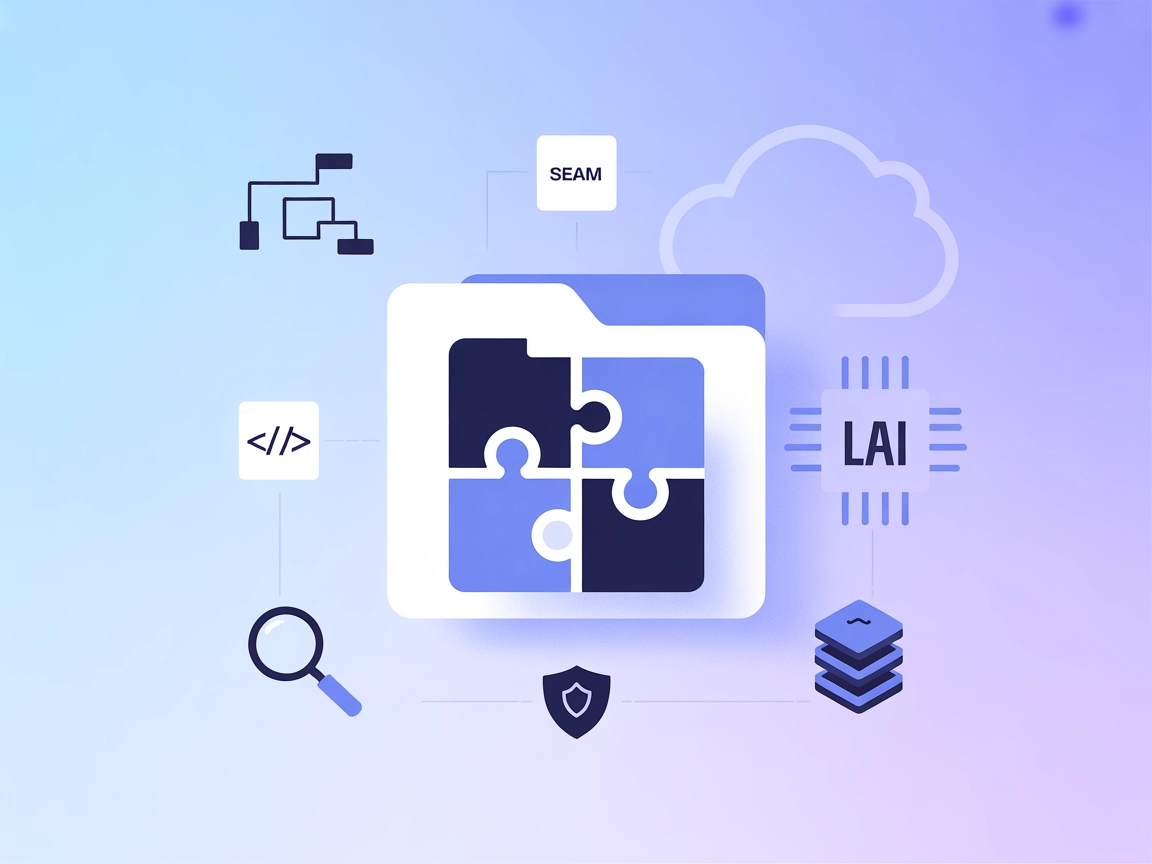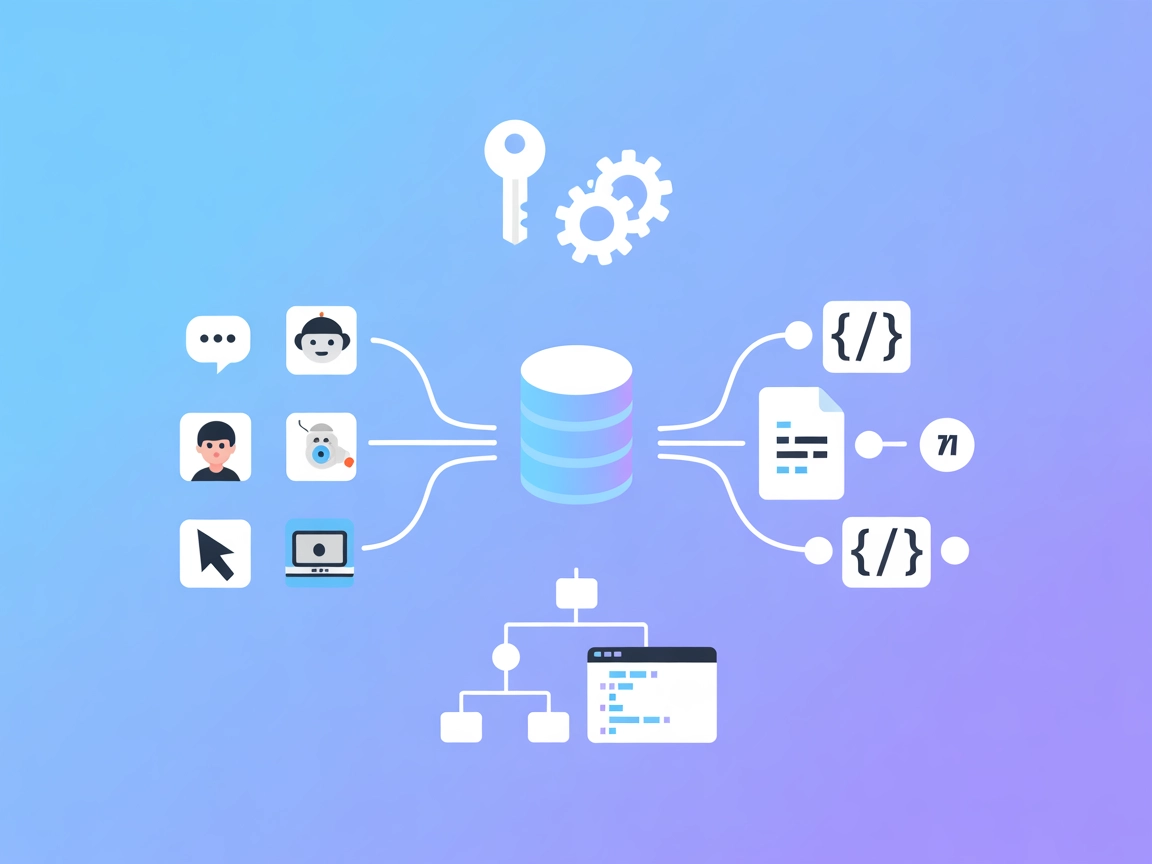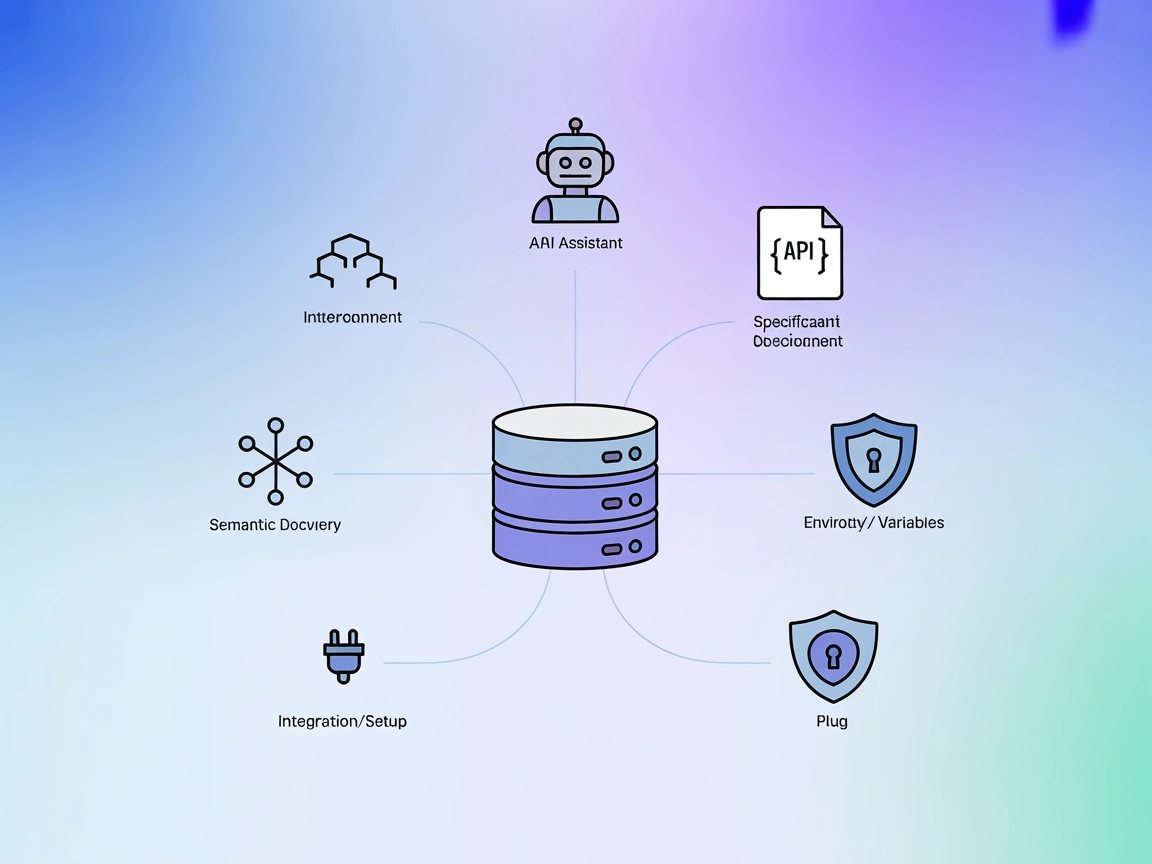
OpenAPI Schema Explorer MCP Server
The OpenAPI Schema Explorer MCP Server enables efficient, structured access to OpenAPI/Swagger specifications as MCP Resources, bridging AI assistants and devel...

Expose and search OpenAPI schemas with LLMs. Instantly list endpoints, retrieve schemas, and enhance API workflows with the OpenAPI Schema MCP Server.
FlowHunt provides an additional security layer between your internal systems and AI tools, giving you granular control over which tools are accessible from your MCP servers. MCP servers hosted in our infrastructure can be seamlessly integrated with FlowHunt's chatbot as well as popular AI platforms like ChatGPT, Claude, and various AI editors.
The OpenAPI Schema MCP Server is a Model Context Protocol (MCP) server designed to expose OpenAPI schema information to Large Language Models (LLMs) such as Claude. By providing structured access to OpenAPI specifications, this server enables AI assistants to explore and understand APIs, including their endpoints, parameters, request and response schemas, and more. This empowers developers and AI tools to query API structures, search across specifications, and retrieve detailed schema definitions, which enhances workflows involving API integration, documentation, and code generation. The server supports loading OpenAPI files in JSON or YAML format and provides results in YAML for improved LLM comprehension.
No explicit prompt templates are documented in the repository.
No explicit resources are described in the repository.
The OpenAPI Schema MCP Server offers the following tools for LLMs:
No setup instructions provided for Windsurf.
npx are installed.~/Library/Application Support/Claude/claude_desktop_config.json$env:AppData\Claude\claude_desktop_config.jsonmcpServers object:{
"mcpServers": {
"OpenAPI Schema": {
"command": "npx",
"args": ["-y", "mcp-openapi-schema", "/ABSOLUTE/PATH/TO/openapi.yaml"]
}
}
}
No setup instructions provided for Cursor.
npx are installed.claude mcp add openapi-schema npx -y mcp-openapi-schema
claude mcp add petstore-api npx -y mcp-openapi-schema ~/Projects/petstore.yaml
claude mcp list
claude mcp get openapi-schema
claude mcp remove openapi-schema
No information provided about securing API keys or using environment variables.
Using MCP in FlowHunt
To integrate MCP servers into your FlowHunt workflow, start by adding the MCP component to your flow and connecting it to your AI agent:

Click on the MCP component to open the configuration panel. In the system MCP configuration section, insert your MCP server details using this JSON format:
{
"MCP-name": {
"transport": "streamable_http",
"url": "https://yourmcpserver.example/pathtothemcp/url"
}
}
Once configured, the AI agent is now able to use this MCP as a tool with access to all its functions and capabilities. Remember to change “MCP-name” to whatever the actual name of your MCP server is (e.g., “github-mcp”, “weather-api”, etc.) and replace the URL with your own MCP server URL.
| Section | Availability | Details/Notes |
|---|---|---|
| Overview | ✅ | |
| List of Prompts | ⛔ | No prompt templates documented |
| List of Resources | ⛔ | No explicit resources documented |
| List of Tools | ✅ | 10 documented tools for OpenAPI schema access |
| Securing API Keys | ⛔ | Not mentioned |
| Sampling Support (less important in evaluation) | ⛔ | Not mentioned |
Based on the available documentation, the OpenAPI Schema MCP Server is highly specialized for OpenAPI exploration via LLMs, offering a strong toolset but lacking details on prompts, resources, API key handling, and advanced MCP features. For OpenAPI use-cases, it’s robust; for broader MCP features, it is limited.
| Has a LICENSE | ⛔ |
|---|---|
| Has at least one tool | ✅ |
| Number of Forks | 9 |
| Number of Stars | 30 |
Rating:
I would rate this MCP server a 6/10. While it is well-defined for OpenAPI schema exploration and offers a strong suite of tools, it lacks documentation for MCP prompt templates, explicit resource definitions, security best practices, and does not mention support for roots or sampling. The absence of a LICENSE is also a significant limitation for open collaboration.
It is a Model Context Protocol server that provides Large Language Models with structured access to OpenAPI specifications, enabling advanced API exploration, documentation, and code generation.
It offers tools to list endpoints, retrieve endpoint and component schemas, fetch request and response schemas, list security schemes, search schemas, and get examples—all programmatically accessible to LLMs.
Use cases include API exploration, automated code generation, API documentation, security review, schema search and analysis, and supporting API testing tools.
Yes, the server can load OpenAPI files in both JSON and YAML formats and returns results in YAML for enhanced LLM comprehension.
No, the current documentation does not provide prompt templates or explicit resource definitions.
No, the current documentation does not cover securing API keys or using environment variables.
It lacks prompt templates, explicit resource documentation, API key handling, sampling support, and does not specify a license, restricting open collaboration.
Empower your AI agents to understand, document, and test APIs programmatically. Integrate the OpenAPI Schema MCP Server into your flows for seamless API access and automation.

The OpenAPI Schema Explorer MCP Server enables efficient, structured access to OpenAPI/Swagger specifications as MCP Resources, bridging AI assistants and devel...

The OpenAPI MCP Server connects AI assistants with the ability to explore and understand OpenAPI specifications, offering detailed API context, summaries, and e...

Connect AI assistants like Claude to any API with an OpenAPI (Swagger) spec. The Any OpenAPI MCP Server enables semantic endpoint discovery and direct API reque...
Cookie Consent
We use cookies to enhance your browsing experience and analyze our traffic. See our privacy policy.